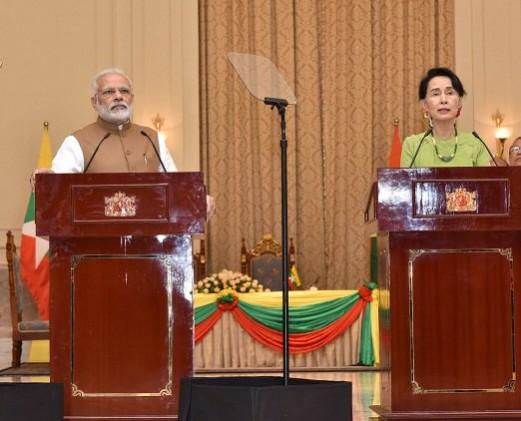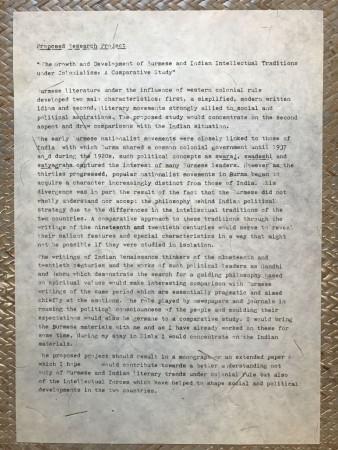
In his first bilateral visit to Myanmar, Prime Minister Narendra Modi on Wednesday said that India shared Myanmar's concern about "extremist violence" in its Rakhine state, where a security force operation against Rohingya Muslims has sent about 1.25 lakh people to Bangladesh.
"We are partners in your concerns over the loss of lives of security forces and innocent people due to the extremist violence in Rakhine State," PM Modi said.
PM @narendramodi with State Councillor Ms. Aung San Suu Kyi at the joint media briefing at Presidential Palace in Naypyidaw, Myanmar pic.twitter.com/omArnkZMTv
— PIB India (@PIB_India) September 6, 2017
"We hope that all the stakeholders can work together in the direction to find such a solution that will ensure peace, justice and dignity for all by respecting the unity and territorial integrity of Myanmar," he added.
Myanmar's de facto leader Aung San Suu Kyi, while addressing a joint news conference with PM Modi at the presidential palace at Naypyidaw, said that Myanmar was grateful for India's stance on the attack on her country.
Suu Kyi thanked India for its strong stand that it took when it came to the terrorist threat that came to Myanmar couple of weeks ago. "We believe that together we can work to make sure that terrorism is not allowed to take root on our soil," she added.
Agreements with Myanmar
India and Myanmar also signed 11 agreements in various sectors including one on security cooperation to strengthen their multifaceted partnership. The two parties signed a MoU to strengthen maritime security cooperation.
They signed another agreement to share white shipping information for improving the data sharing with nonclassified merchant navy ships or cargo ships. Another MoU was signed to organise a cultural exchange between two countries for a period of three years that is from 2017-2020.
PM's gift to Myanmar State Counsellor
PM Modi also presented Suu Kyi a special reproduction of the original research proposal that she had submitted for a fellowship at the Indian Institute of Advanced Study at Shimla in May 1986.

The research proposal was titled 'The Growth and Development of Burmese and Indian Intellectual Traditions Under Colonialism: A Comparative Study.'














